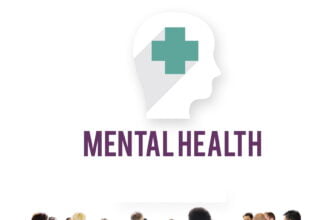Cognitive behavioral therapy (CBT) describes a mental health therapy to help people develop coping mechanisms and challenge their thought processes. Many people who undertake CBT learn new skills to help with both daily challenges and long-term mental health troubles. While it can be intimidating to undertake a new type of therapy, now might be the right time to explore your options when there’s potential to experience some of the following benefits.
What is Cognitive Behavioral Therapy or CBT and its Definition?
Cognitive Behavioral Therapy (CBT) is a type of psychotherapy that has been used to treat mental health issues since the 1960s. It uses cognitive and behavioral techniques to help people manage their thoughts, feelings, and behaviors. CBT has been shown to be an effective treatment for a variety of conditions, including depression, anxiety, and post-traumatic stress disorder.
Assistance with a Wide Range of Mental Health Conditions
Many psychotherapists use cognitive behavioral therapy to assist with a wide range of mental health conditions, such as depression, anxiety, eating disorders, and schizophrenia. While initially developed to treat depression, it is now one of the most effective therapy forms for anxiety and even forms part of a therapeutic strategy to treat binge eating and bulimia nervosa eating disorders. Many psychotherapists also rely on CBT to ease the symptoms of schizophrenia and improve sufferers’ quality of life.
Many Cognitive Behavioral Therapy Options and Techniques
One type of cognitive behavioral therapy might not work for you, but that doesn’t mean all kinds won’t be suitable. There is now a variety of CBT-based treatments that mental health professionals rely on to treat their patients, such as:
- Trauma-focused CBT
- Positive CBT
- Mindfulness-based CBT
- Behavioral Activation
- Acceptance and Commitment Therapy
- Rational Behavior Therapy
- Cognitive Therapy
Gives People Hope
Many mental health conditions lead people to feel pessimistic about their future. Some people even believe that the world and their loved ones would be better off without them. However, CBT can often turn this thought process on its head.
With the help of trained psychotherapists, many patients learn that thoughts aren’t facts and don’t always accurately represent reality. When we challenge our thought processes, we can explore a different truth.
Learn How to Relax
Our thoughts and feelings can be overwhelming, especially in uncomfortable situations. With CBT techniques, you can learn how to relax and have control over your response. Many people find that when they put cognitive behavioral therapy techniques into practice, they can reduce their mental health-related symptoms and feel more relaxed in previously overwhelming situations.
Studies Prove Its Efficacy
It’s only natural to be nervous about trying new therapies when you’re unsure if they’ll be effective. In the case of CBT, studies show profound effectiveness for a variety of mental health conditions. For example, one review of over two dozen trials found that CBT effectively treated anxiety-related conditions, such as generalized anxiety disorder, panic disorder, and social anxiety disorder. In a review of 41 studies, it was also found to be effective when compared to placebos.
More Thought Control
It’s not uncommon to experience cognitive distortions. They can happen automatically without the person experiencing them forcing them to appear. However, CBT has the potential to help people explore their negative thoughts with curiosity.
Rather than letting those negative thoughts consume you, you can think rationally, question the feelings, and evaluate what would be the most appropriate responses to particular situations and experiences. When you become competent in evaluating each negative thought, you can take control over your resultant feelings.
Exploring new therapies might be uncomfortable, but it’s hard to deny the potential benefits of CBT. If you’re currently experiencing a mental health condition, you might enjoy more control, relaxation, and hope, when exploring CBT techniques with your local psychotherapist.










